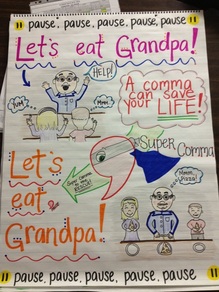
But are the rules really so terrible?

The rules themselves make understanding comma use more difficult.
I suggest writers forget about the rules of comma use.
So what should a writer do instead?
The teacher lectured to the students who were sitting at their desks.
The teacher lectured to the students, who were sitting at their desks.
In the first sentence, the reader may stop to wonder why the teacher is only lecturing to the students who were sitting at their desks. Now, you may well mean that the teacher is lecturing only to the students at their desks, but you would likely have to explain what the other students are doing and why they aren't included in the lecture (maybe they're doing a lab at the back of the room, for instance). The comma in the second sentence makes it clear that the teacher is lecturing to the students, all of whom are sitting at their desks.

The mother took the toy making her toddler cry.
The mother took the toy, making her toddler cry.
The first sentence says that the toy was making the toddler cry, so the mother took it. In the second sentence, the comma makes it clear that the mother made her toddler cry by taking away the toy.
In these two examples, it doesn't matter in the least to know whether you have an essential or nonessential clause; all that matters is that you know whether you need the comma or not, so that the reader understands instantly what you mean. You know this intuitively if you pay a little attention to what you write. Often, you don't notice it until you are in the editing phase and you must pause when rereading the sentence to figure out what you meant. That's your cue to think about whether or not a comma would help the reader understand your intent.

You've probably seen some of the funny Internet memes declaring that commas save lives. I love those clever memes!
I love them not only because they are hilarious (at least to a grammar nerd like me), but also because they teach intuitive comma use without ever mentioning the rules.
Commas are tools, and like any tool, if used correctly, will make your life (or at least your writing) easier. If a tool is too complicated to use correctly, then it isn't much good, is it?


 RSS Feed
RSS Feed